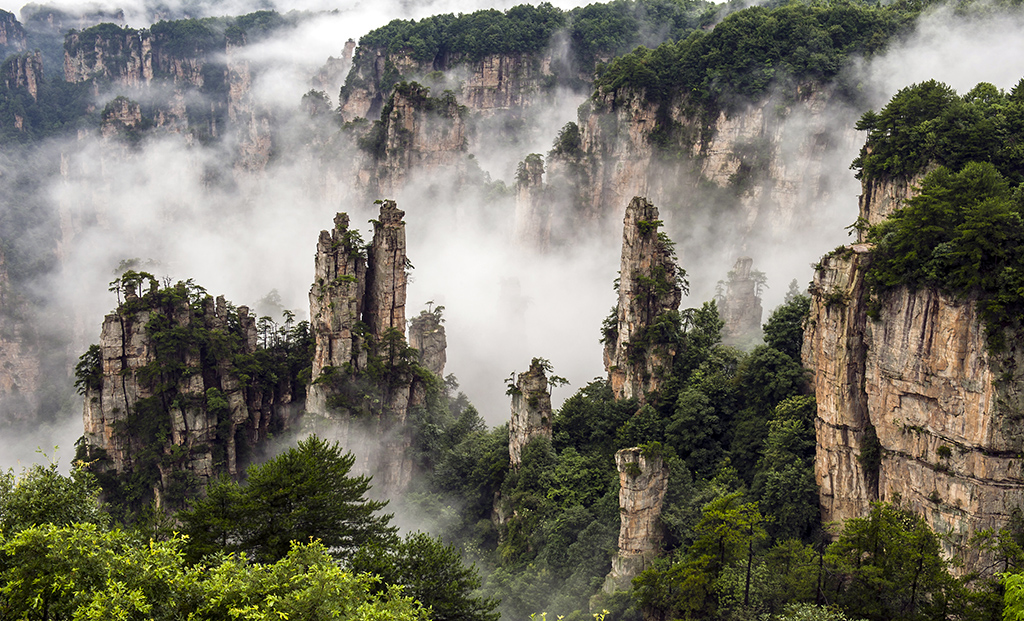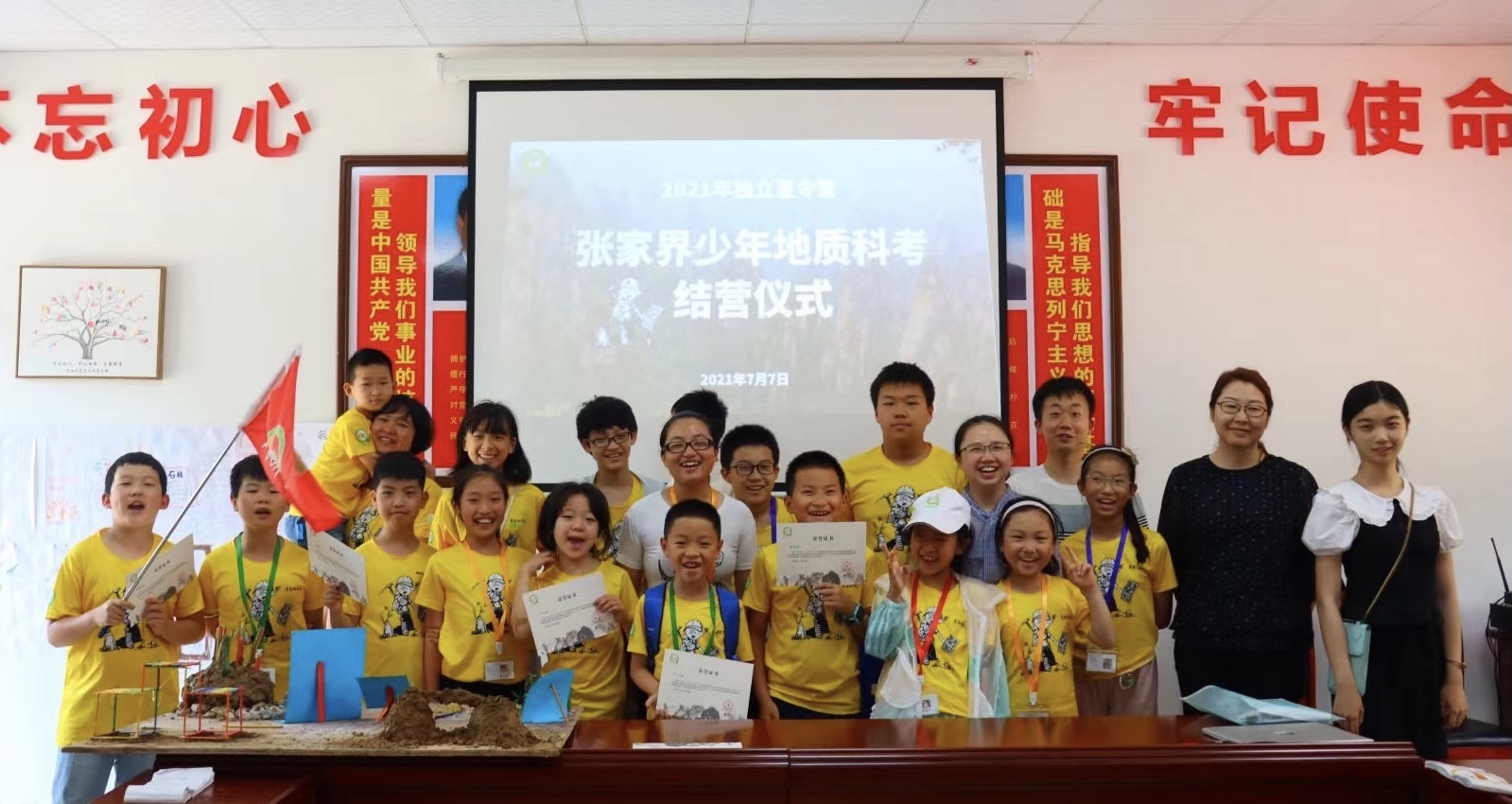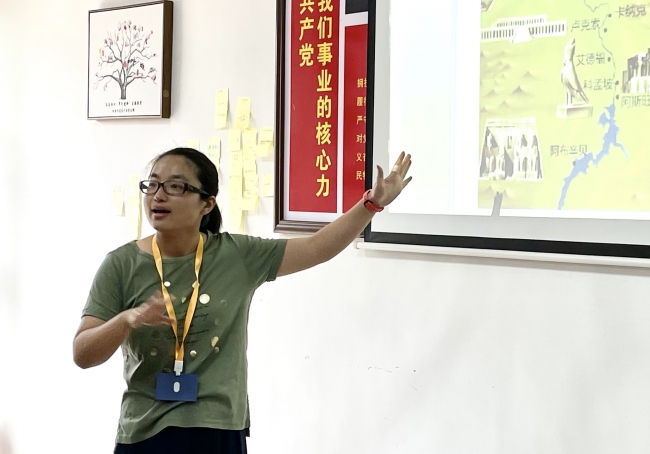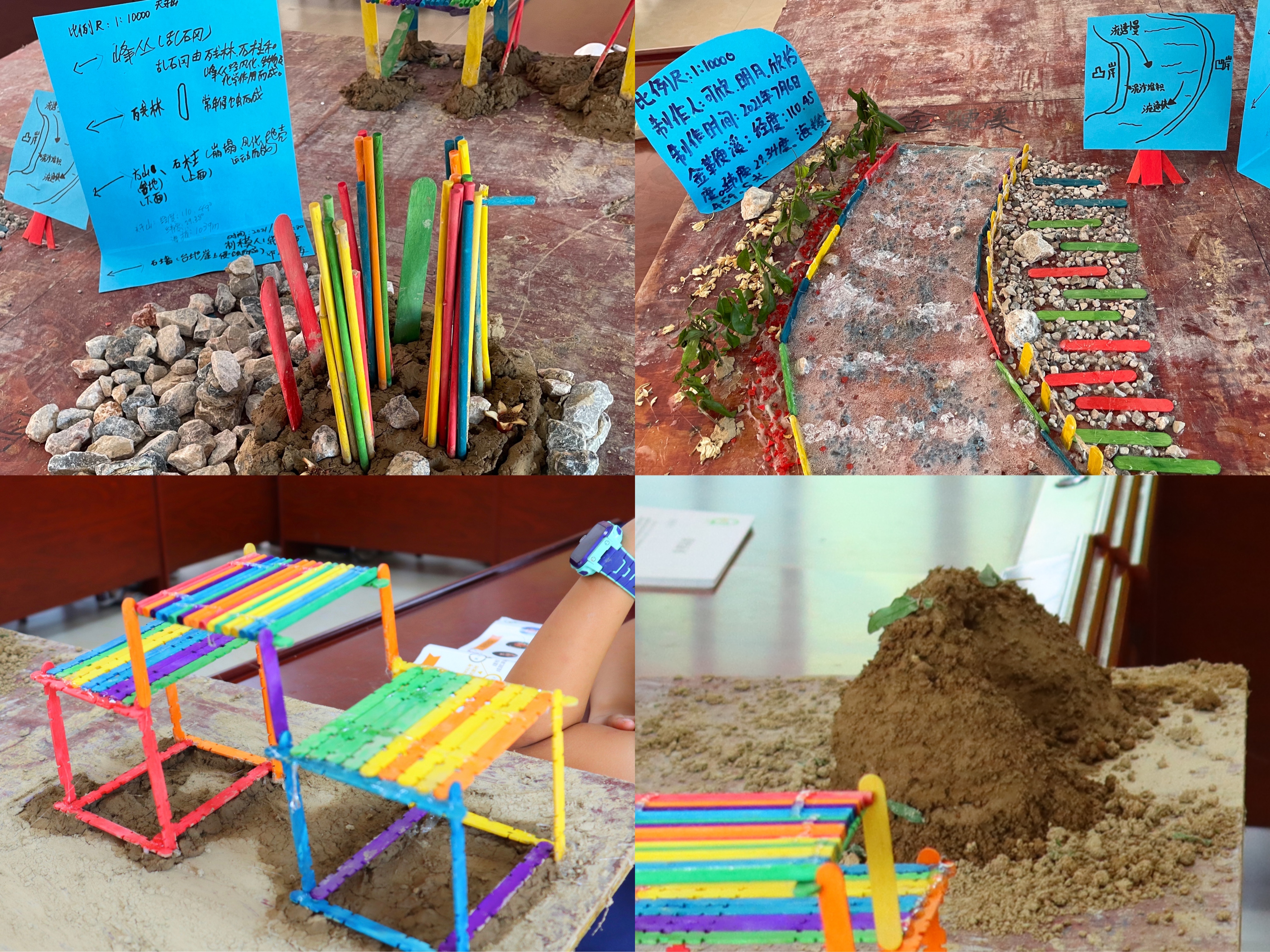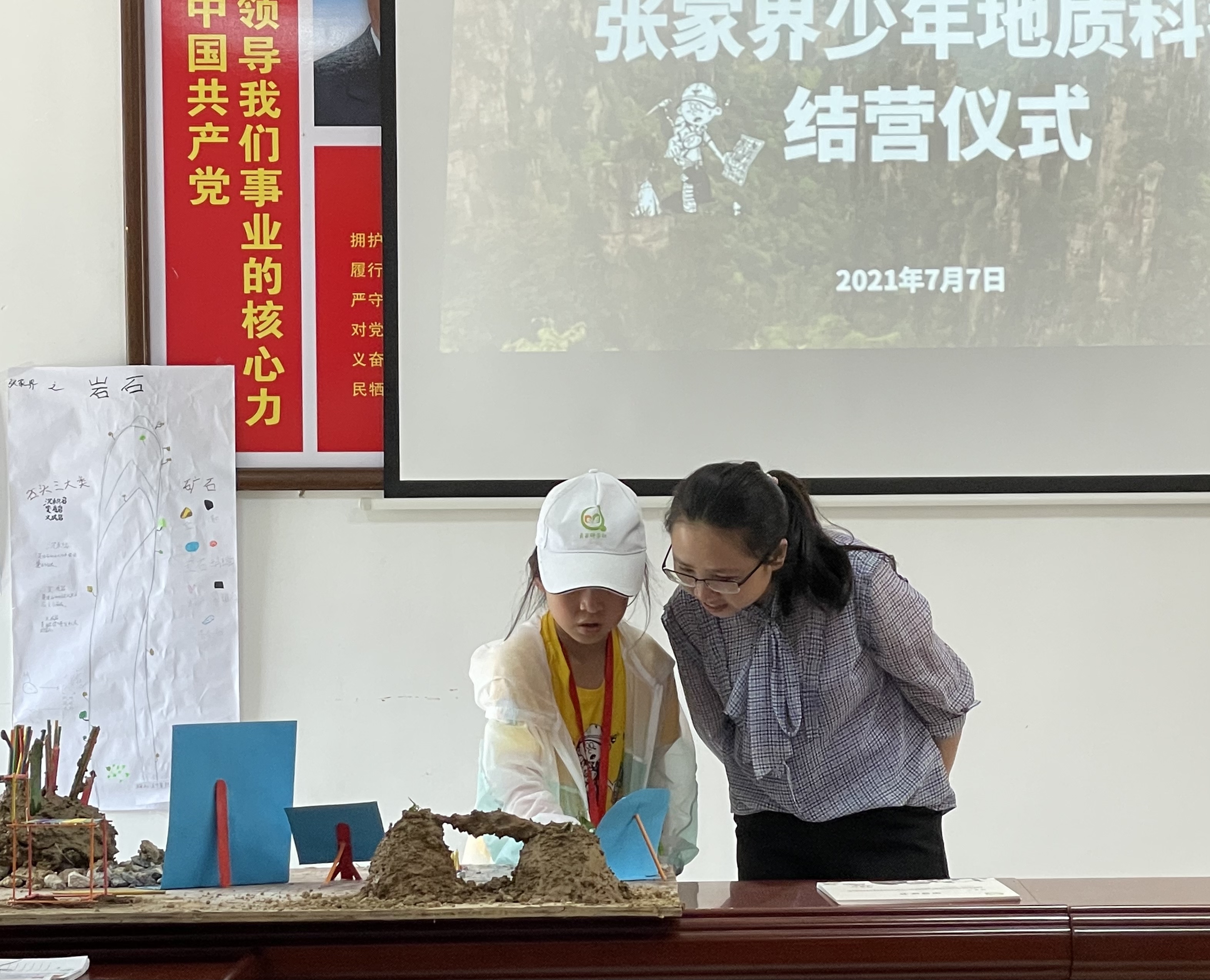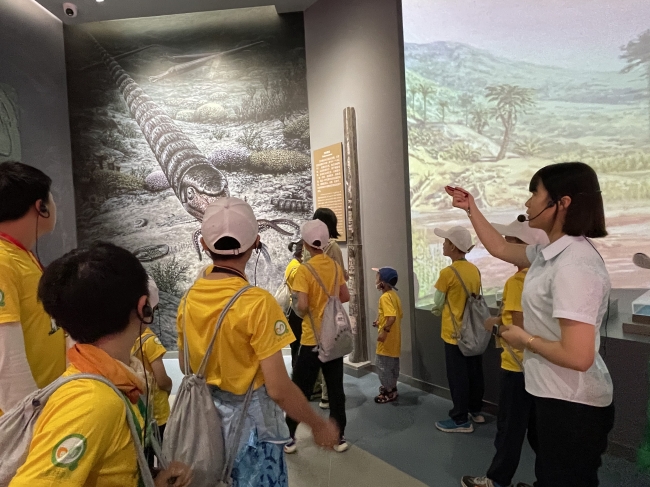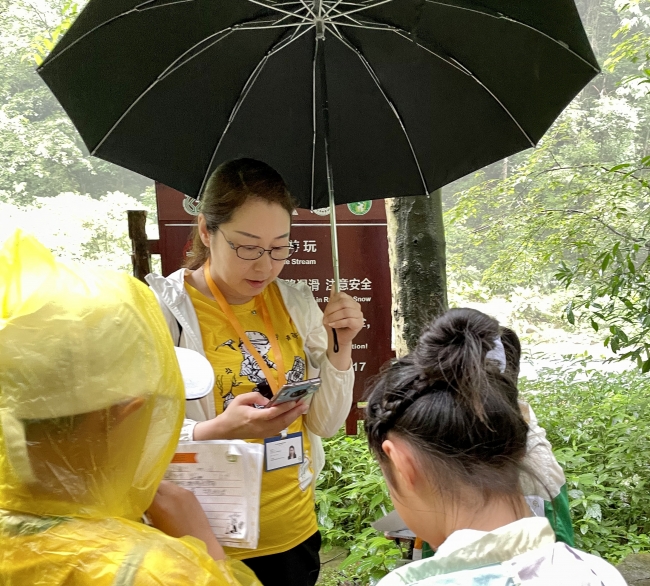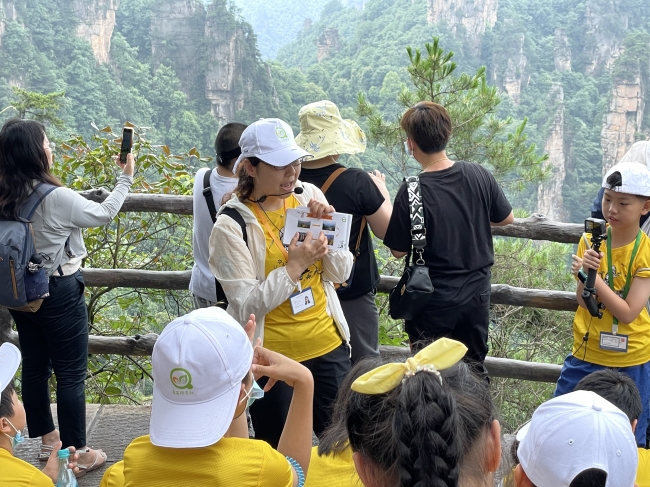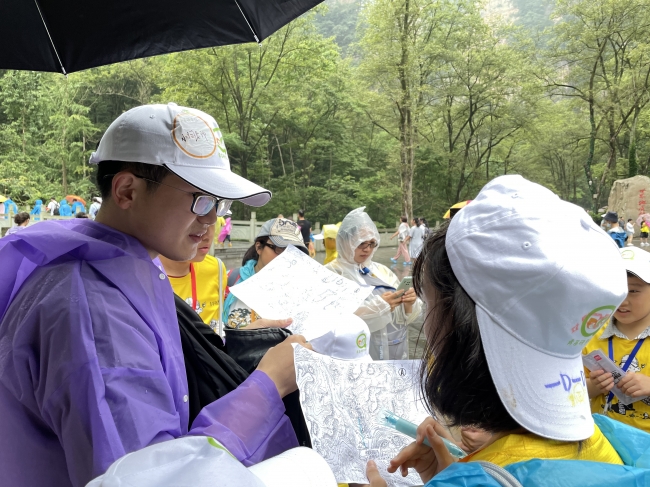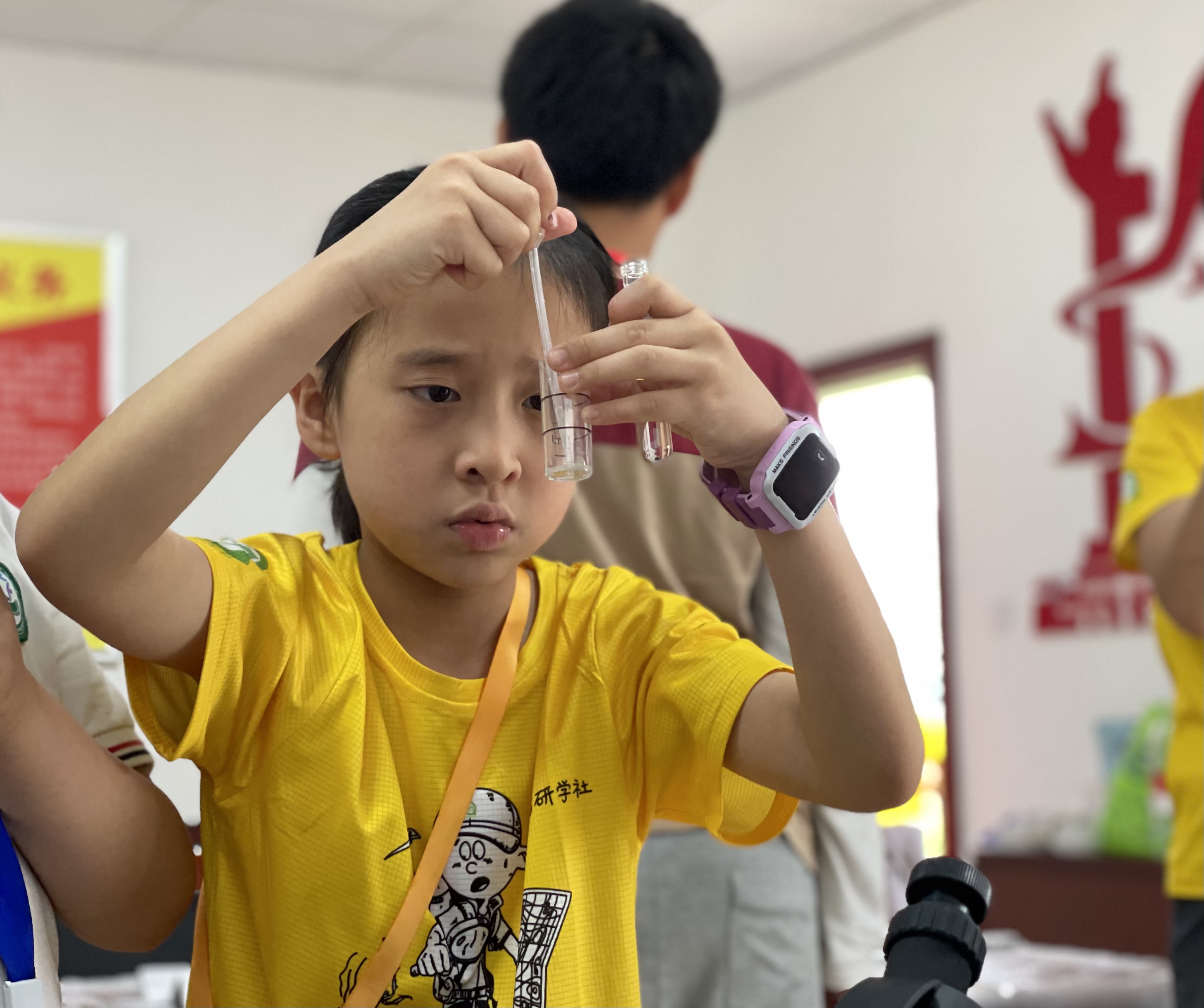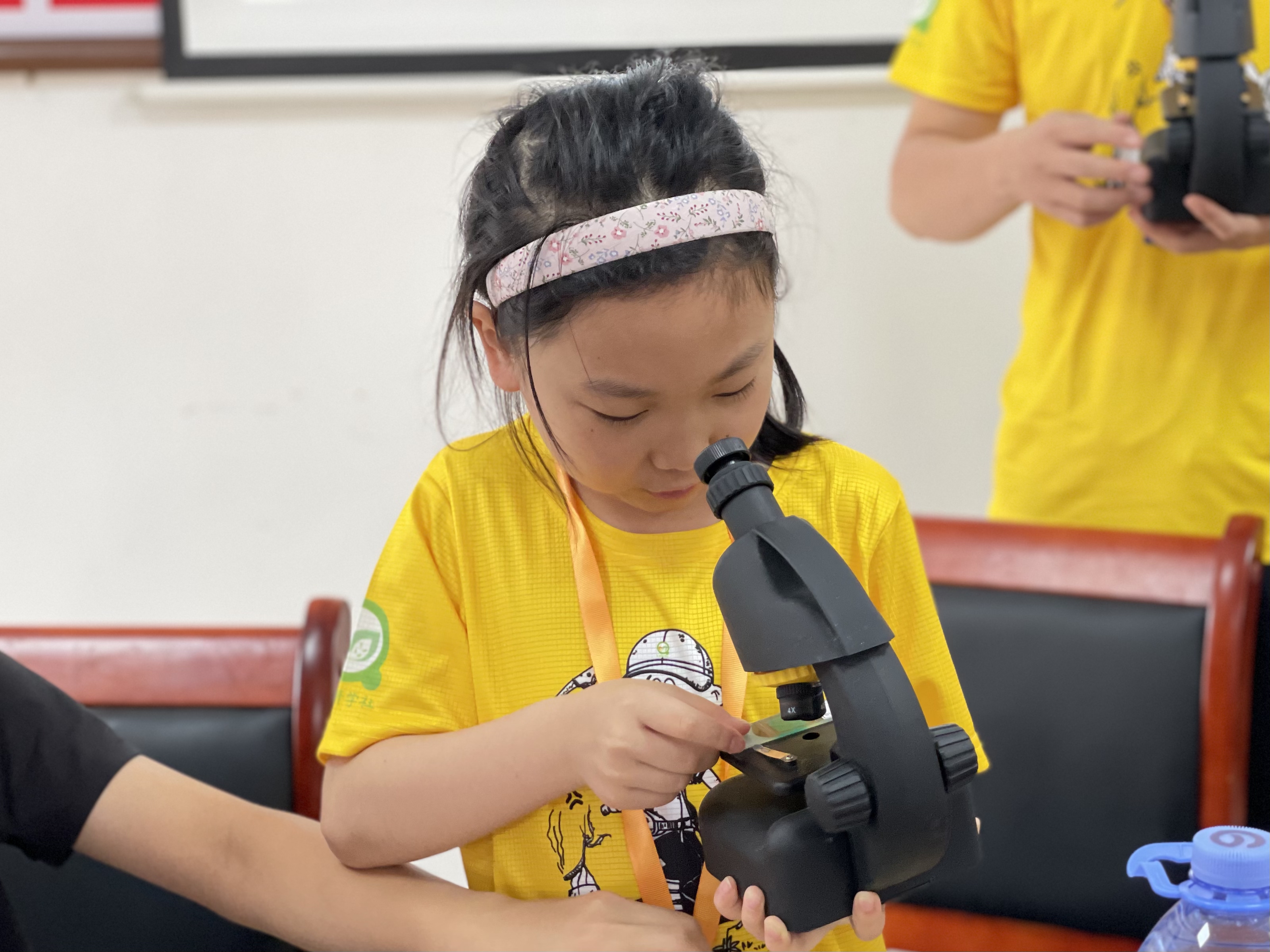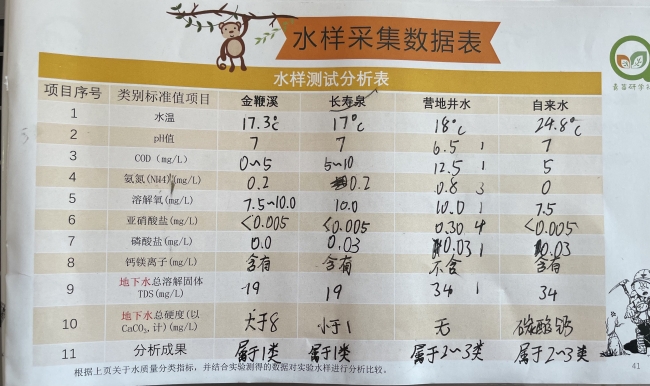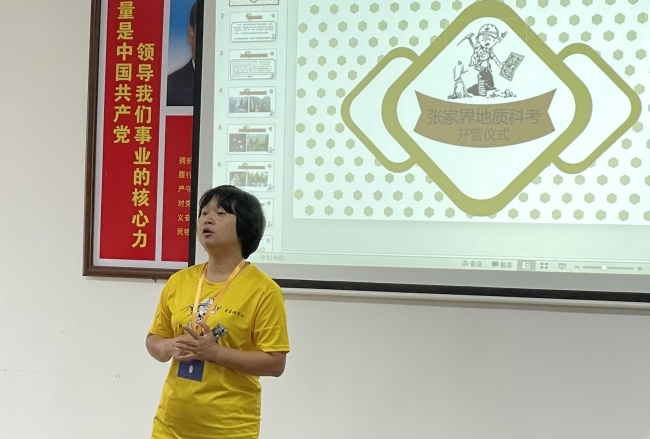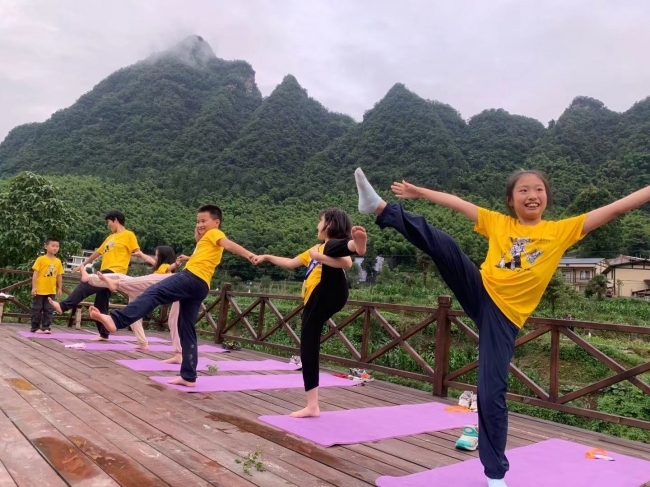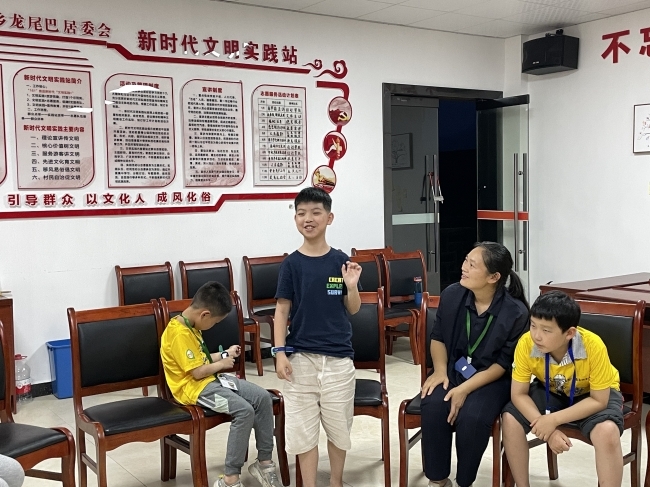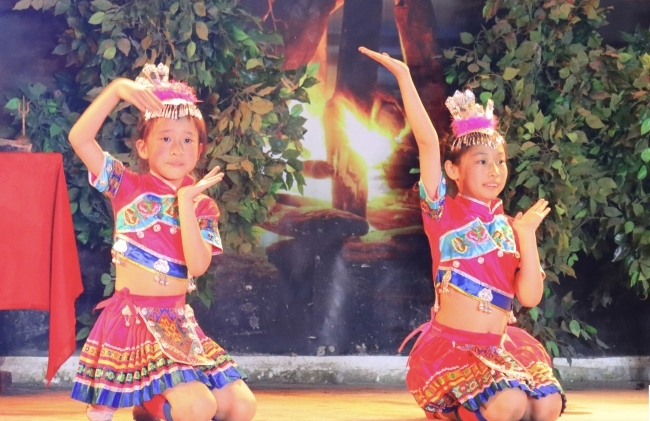| The Zhangjiajie Geological Science Research Camp was successfully held |
| PublishDate:2021-09-24 Hits:4275 |
From July 1st to 7th, hosted by Shanghai Qingmiao Study Community, the Zhangjiajie Geological Science Research Camp was successfully held at Wulingyuan, Zhangjiajie, Hunan, China, under the joint guidance of World Heritage Institute of Training and Research for the Asia and the Pacific Region under the auspices of UNESCO, Shanghai Centre (WHITRAP Shanghai) and Forest Bureau of Wulingyuan District, Zhangjiajie, Hunan. Seventeen primary and secondary school students from Shanghai, Jiangsu and Hunan took part in the Science Research Camp. The content included three significant modules: emotion management, social communication, and thematic study. The thematic research focuses on Zhangjiajie landforms, supplemented by world heritage and basic knowledge of geology. The purpose of the science research camp was to train students to clarify their goals, self-management, team cooperation and to be considerate through the combination of theoretical knowledge, field investigation and experimental games. At the same time, the outstanding universal value of Wulingyuan World Heritage Site was deeply interpreted. Ms. Li Hong, Programme Specialist of WHITRAP Shanghai, was responsible for popularising knowledge of the UNESCO “World Heritage Education Project”. Associate professor Prof. Liu Qi from the College of Civil Engineering, Tongji University, taught the basic geomorphology and geology of Zhangjiajie. Ms. Deng Xiufeng and Ms. Jiang Xiaojuan cooperate with the experimental course and emotion management. Ms. Gao Feifei guided physical training.
The Zhangjiajie Geological Science Research Camp
Ms. Li Hong, Programme Specialist of WHITRAP Shanghai, explained the origin of world heritage
At the end of the Zhangjiajie Geological Science Research Camp, students made four sandbox models with dirt, stones and sticks. The models combined Wulingyuan Scenic Spot and geological knowledge points, namely Jinbian stream, Zhangjiajie Geopark Museum, Yuanjiajie and Tianzi Mountain. These models were assessments of the students' research achievement and a unique angle for the students to contribute to the Forest Bureau of Wulingyuan District and interpreted the heritage to the tourists.
Geological sandbox made by students
Students introduced the hand-made geological sandbox to MS. Qin Yi, deputy director of forestry bureau of Wulingyuan district
After the Zhangjiajie Geological Science Research Camp, all participants gave evaluations from "course organization" and "course content" in quantitative method with valuable suggestions. According to the result, 69.23% of the students and 100% of the parents are satisfied with the "course organisation", and 88.46% of the students and 100% of the parents are happy with the "course content".
Prof. Liu Qi illustrated multi-dimensional geographical knowledge to students through theoretical courses, route investigation and scientific experiments. On the first day, Prof. Liu Qi gave a lecture on the simple understanding of geological science. Students recognised that geology is tightly banded with daily life, which is part of geology studies. Secondly, Prof. Liu Qi explained the basic geological knowledge, such as internal and external forces of the geological process, stratigraphic sequence law and geological age identification, Zhangjiajie landform genesis and geological investigation field skills. The knowledge mentioned above providing complete knowledge for later investigation. Besides, the case of geological subsidence in Shanghai proposed was well received by the students. Students expressed their opinions on this issue enthusiastically, and the class atmosphere was particularly active. Because of the high-risk index of geological disasters in the rainy season, the popularisation of emergency measures is particularly crucial. As a result, students achieved a detailed understanding of the emergency measures for geological disasters, such as landslides and collapses based on the course content.
During the field trip in the following two days, students visited Zhangjiajie Geological Museum, Jinbian Stream, Tianzi Mountain and Yuanjiajie. Through the onsite explanations, they briefly understanded the unique geological and geomorphological features of Zhangjiajie. For example, peaks formed by weathering, stone walls, planation surfaces caused by orogeny, iron caps etc. Led by Prof. Liu Qi, students collected water and rock samples along Jin Bian stream to prepare for scientific experiments. To strengthen the students' understanding, they studied to draw geological sketches in Helong Park, Tianzi Mountain. In addition, students also contained a preliminary knowledge of using geological research tools like the geological compass and outlined the basic geological research route map.
Students visited the Zhangjiajie World Geopark Museum
Prof. Liu Qi illustrated geological features
Prof. Liu Qi explained geological characteristics of Tianzi Mountain
Students drafted geological observation map
On the experiment day, students tested the water and solid samples they collected on the previous day. Under the guidance of Prof. Liu, students used various reagents, water quality testing pens and microscopes to collect analysed data. In addition, the students preliminarily analysed soil samples by the soil analysis method using particle diameters.
Water quality testing
Water quality sampling data collection
For daily activities, in the morning, Ms. Gao Feifei started her morning physical activity course. Then, students did children's yoga in the steamy mountains to stretching and cultivate their minds. In the evening, Ms. Deng Xiufeng and Ms. Jiang Xiaojuan organized indoor and outdoor activities. Through round table communication, students got to know each other and enhanced team cohesion.
Opening ceremony
Children’s yoga
Round table communication
At the end of the camp, students expressed their appreciation to villagers in the Wulingyuan district by held a bonfire party.
Bonfire party |
- Documentary: 2023 World Heritage Creative X Innovators Conference and the AWHEIC Third Anniversary Celebration
- Publication | WHITRAP Newsletter No. 61
- Mt. Huangshan first show in Climate Action for World Heritage
- Call for Good Practices: 2024 Environment and Resilience
- FAQs | 2024 Call for Good Practices
- Operational Guidelines for the Implementation of the World Heritage Convention 2017
Copyright © 2009-2012 World Heritage Institute of Training and Research-Asia and Pacific (shanghai)


